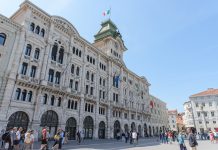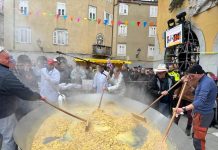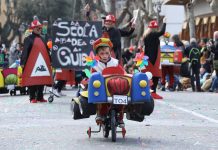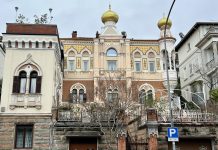by Nina Vaclavikova
Interviews: Maurizio de Blasio, Trieste councilor for youth education; Mavis Toffoletto, coordinator of the project
In a city long associated with literary giants and café-side debates, Trieste is formally embracing shared reading as a civic practice. On the Region’s Giornata per la Lettura, officials introduced the first network of municipal reading groups, marking a renewed effort to cultivate communal engagement through books.
The announcement took place at the LETS Museum’s Forum Space as part of Un Libro Lungo un Giorno, an annual regional initiative that promotes reading across Friuli Venezia Giulia. Local officials, cultural organizers and members of recently formed clubs gathered to highlight a movement that has been quietly growing in recent years.
“Preserving a culture of reading is particularly important for younger generations,” said Maurizio De Blasio, the city’s Councillor for Education and Family Policy. “Reading groups not only promote books, but foster dialogue, exchange and community — all elements that are essential.”
Although Trieste has hosted literary salons and informal book clubs in the past, the municipal survey presented at the event shows just how broad the phenomenon has become: 22 active reading groups currently operate across the city. They range widely in style and focus, covering classic literature, poetry, essays, fantasy and more. Some groups read aloud together, others read independently before gathering to discuss — and some meet for silent communal reading followed by conversation.
Each group, organizers noted, shapes its own rhythm and identity, but all share a commitment to stories and to creating space for cultural exchange.
The LETS Museum has played a central role in the initiative, launching two reading circles in early 2024 — the Ulysses Reading Group and In Prima Persona — both of which have been met with strong interest. A third club, Paideia, will join them in December.
The momentum is extending beyond institutions: in recent months, two associations have formally requested space in city libraries for their groups, underscoring what organizers describe as increasing grassroots demand.
“Our goal is to give readers a place to share their passion,” said Mavis Toffoletto, coordinator of the Trieste Reading Pact. “Often reading is solitary. These groups allow people with similar interests to meet, exchange ideas and grow. In this way, the impact of a book multiplies.”
A dedicated page on the BiblioEst library portal will soon list Trieste’s reading groups, along with schedules and book selections, serving as a centralized resource for prospective participants. Meanwhile, collaborations are being developed with local bookstores, publishers and authors to support access to selected titles and highlight the region’s editorial landscape.
The initiative is funded by Italy’s Center for Books and Reading, a national body that promotes literacy and literary culture.
For a city that once inspired James Joyce, Italo Svevo and Umberto Saba, the rise of organized reading circles represents both continuity and renewal — a collective return to pages and voices in a place where literature has never been far from daily life.






























